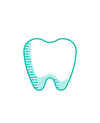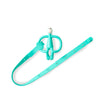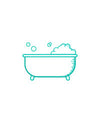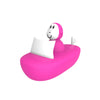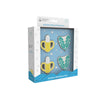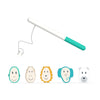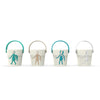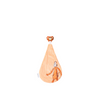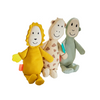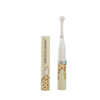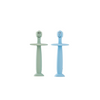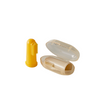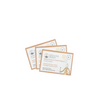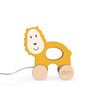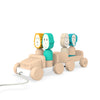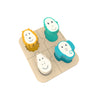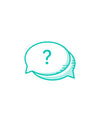Helping Your Baby Say Their First Words
A baby’s first words are always a source of excited anticipation. When finally the blabbering, gargling and gesticulating gradually form themselves into a recognisable word.
The first word could be a delightful “mama” or “dada” but it’s not uncommon to be en emphatic “No!” either. Or something random!
“EGG!” My friends' child would often shout, randomly into the air when asked a question - or for no apparent reason other than he wanted to say it. It was true that he particularly liked eggs, but even when sat at his high chair for lunch, requesting one repeatedly, he’d still often chuck it on the floor with a flourish if handed one!
But how can we help our baby along as they seek to learn and communicate with you and the wider world?
Your baby will likely have been experimenting with different sounds, mumbles and jumbles of vowels and consonants for a while. They’ll most likely start off copying simplified versions of words you regularly repeat to them, without always knowing what they mean.
Eventually, the words have an instantly recognisable meaning and intention, sometimes going along with gestures like a head shake for “no” or pointing and saying “that” to indicate a place or object. Suddenly, a new world of vocal communicating opens up between your child and the world.
In this article, we’ll look at the ways you can help your baby to say their very first words.

Talk to your baby, even if you think they’re not listening
Your baby is constantly observing their surroundings, watching and listening to what’s going on around them. If you talk to them, and when you’re around them, they’ll gradually pick out words they recognise and attach meaning to them, like their name.
Talk to your baby about what you’re doing, narrating your actions when you’re dressing and feeding them, or getting things done around the house. Speak people’s names, and point and say the names of objects you both see as you go about your day.
Ask your baby questions too. When your baby makes noises back, even if they don’t make sense, show them you’re listening by making eye contact and smiling. They’ll love the attention!
Speak slowly and clearly
When talking directly to your baby, you don’t have to use cutesy baby speak. But talking slowly and clearly, mouthing the words in a slightly exaggerated way, will help your baby begin to understand. Try reading simple storybooks and pointing to the pictures that correspond with the words.
Babies like watching and listening at the same time and will gradually begin to associate objects with sounds and experiences.
Repetition of words and sounds
Repeating simple words and sounds can help your child begin to form those words. Emphasising the first and the last sound of three-letter words is a good place to start. Try pronouncing simple words phonetically like “ca, ca, ca ca, ca - t” or “tha, tha, tha, tha - t”.
Singing songs and rhymes
Baby’s love melody. Singing songs and repeating nursery rhymes will help your baby learn language skills and have fun doing it!
Use names instead of pronouns
When you're talking about you, your baby or someone else, try and use names instead of pronouns. “Auntie Ellie” instead of “Your auntie”, “mummy’s hat” instead of “my hat” and “Olly’s bed” instead of “your bed” because it’s easier for babies to understand.
How old is a baby when they say their first words?
The age a baby says their first words is usually somewhere between 8 and 14 months, but not always. If your baby picks up speech later than their peers, this isn’t a cause for concern. Every child develops different skills at their own pace. It’s just as normal for a child to start forming words as early as 7 months as it is at 18 months.
What was your baby’s first word? Was it something unusual? We’d love to know! Tell us at @matchstick_monkey on Twitter or Instagram.

